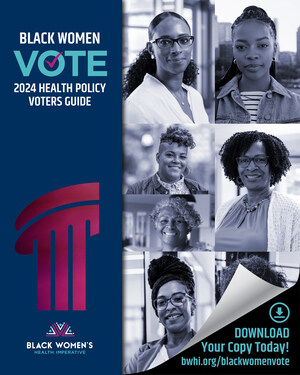WASHINGTON, Aug. 27, 2024 /PRNewswire/ -- The Rare Disease Diversity Coalition (RDDC) and the National Organization for Rare Disorders (NORD) have unveiled the findings of a groundbreaking national survey aimed at illuminating the barriers faced by underrepresented patients with rare diseases. This pioneering research involved over 2,800 participants, revealing critical insights into the challenges of accessing necessary healthcare.
One key finding reveals that a staggering 50% of respondents reported feeling overwhelmed by the demands of managing life, care, or caregiving responsibilities. This data point highlights the significant emotional and logistical burdens placed on individuals and families within these communities.
The survey's formulation and review process involved meticulous crafting, drawing on insights and recommendations from the RDDC's Patient and Caregiver Working Group. This collaborative effort resulted in a mixed-method study encompassing qualitative and quantitative questions, designed to capture a comprehensive snapshot of the participants' experiences.
Jenifer Waldrop, Executive Director of the RDDC, highlighted the critical nature of these findings: "The findings from this survey serve as a wake-up call. Over 43 percent of the respondents were from underserved communities, and we found that more than 20% of them delayed or skipped care because they lacked basic needs like food and shelter, a reality that demands immediate attention. We must work together to create a healthcare system that truly accommodates the needs of every rare disease patient and caregiver."
Pamela Gavin, CEO of NORD, further underscored the importance of these findings: "This first-of-its-kind survey illuminated many things we know too well about patients with rare diseases and their caregivers—that they are overburdened by their symptoms and the costs of medical care, that they are often excluded from public life, and that in many ways our medical system is leaving them behind. But what it also showed is that these barriers to care are more pronounced for people of color, people in rural areas, non-English speakers, low-income individuals and families, and the many members of our community with disabilities. Any policymaker, healthcare provider, or insurer reading these results should understand that critical action is needed. The good news, which we detail in the report, is that there are solutions—but it will take all of us to make them happen."
The insights from this survey are set to inform future policies and interventions aimed at eliminating disparities in the diagnosis, care, and treatment of rare diseases. For more information on the study and to view the detailed report, please visit: Link to Survey
About the Rare Disease Diversity Coalition (RDDC):
Black Women's Health Imperative launched the RDDC to address the extraordinary challenges faced by underserved populations with rare diseases. The Coalition brings together rare disease experts, health and diversity advocates, and industry leaders to identify and advocate for evidence-based solutions to alleviate the disproportionate burden of rare diseases on historically marginalized populations. For more information, visit rarediseasediversity.org
About the National Organization for Rare Disorders (NORD):
With a more than 40-year history of advancing care, treatments and policy, the National Organization for Rare Disorders (NORD) is the leading and longest-standing patient advocacy group for the more than 30 million Americans living with a rare disease. An independent 501(c)(3) nonprofit, NORD is dedicated to individuals with rare diseases and the organizations that serve them. NORD, along with its more than 340 patient organization members, is committed to improving the health and well-being of people with rare diseases by driving advances in care, research and policy. For more information, visit rarediseases.org.
Contact:
For media inquiries, email: [email protected]
SOURCE Black Women's Health Imperative

WANT YOUR COMPANY'S NEWS FEATURED ON PRNEWSWIRE.COM?
Newsrooms &
Influencers
Digital Media
Outlets
Journalists
Opted In






Share this article